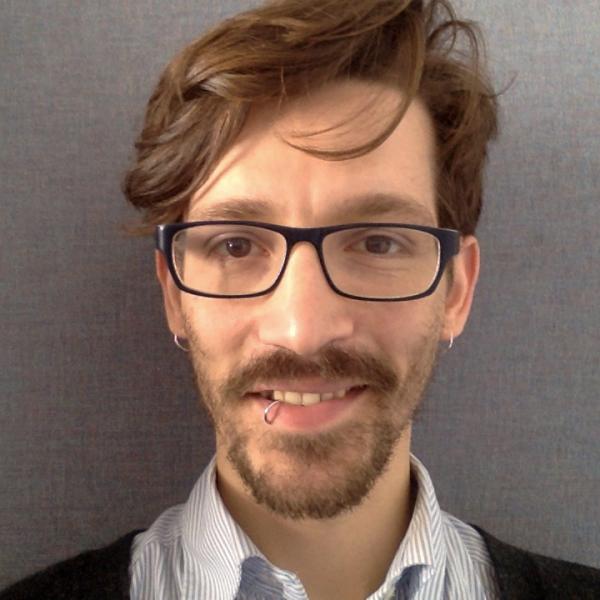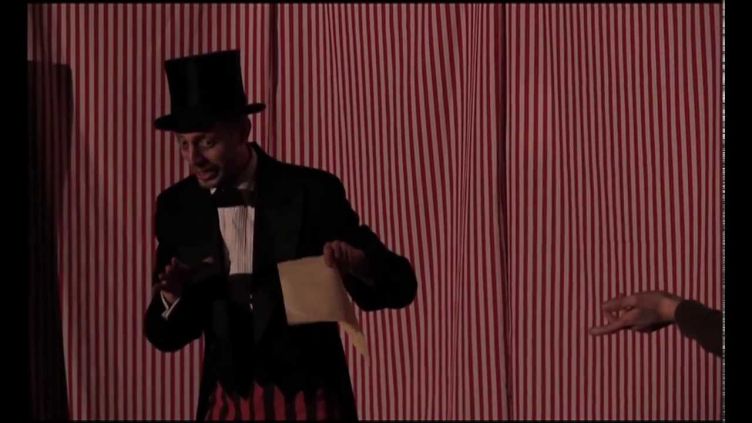Dr Chris Millard
BA, MA (York) PhD (Queen Mary, University of London)
School of History, Philosophy and Digital Humanities
Senior Lecturer in the History of Medicine and Medical Humanities
Senior Tutor


+44 114 222 2558
Full contact details
School of History, Philosophy and Digital Humanities
9 Mappin Street
Sheffield
S1 4DT
- Profile
-
I joined the University of Sheffield in 2016, having studied and taught in York, Birmingham and London.
My research focuses on the history of psychiatry and medicine in the twentieth century, particularly around self-harm, suicide, faking illness and child abuse.
I am also interested more broadly in the welfare state, the ‘helping professions’ of social work and child guidance, and the increasing influence of anthropology and sociology on medicine and psychiatry during the twentieth century.
I have published on the history of attempted suicide and self-harm, English mental health policy, and the history of the emotions.
I also worked in the UK Parliament in 2014, researching and writing a briefing on ‘parity of esteem between mental and physical health’.
- Research interests
-
I am currently writing a history of illness deception in the twentieth and twenty-first centuries: Munchausen Syndromes and Modern Medicine.
This book charts the chronic faking of illness (Munchausen syndrome), deliberately making one’s children ill (Munchausen syndrome by proxy), and faking illness online (Munchausen by internet).
These linked categories are related to diverse concerns in Britain, such as the expanding welfare state and National Health Service, the ‘rediscovery’ of child abuse in the 1960s and 1970s, and the anxiety created by online anonymity.
I still write about self-harm and attempted suicide, the subject of my PhD thesis and later my book: A History of Self-Harm in Britain: A Genealogy of Cutting and Overdosing (2015).
My next project is a history of the idea of ‘parity of esteem between mental and physical health’.
This is currently a hot topic in mental health policy, but has been a prominent way of campaigning for mental health for at least a century.
More generally, I am interested in the ways in which modern medicine and psychiatry influence and inform our everyday lives, from assumptions about who we are, the advice we are given, and the services provided for us.
This involves research in the history of the emotions, the history of anthropology and sociology, and the history of psychiatry, psychology, social work and medicine.
- Publications
-
Books
- A History of Self-Harm in Britain. Palgrave Macmillan Wellcome Trust.


- A History of Self-Harm in Britain: A Genealogy of Cutting and Overdosing. Basingstoke: Palgrave Macmillan UK.


Edited books
Journal articles
- A history of self-harm in the UK and the USA. The Lancet, 404(10461), 1395-1397.


- History shows that doctors’ professional identity shapes healthcare discourse—and we must not ignore it. British Medical Journal (The BMJ), 2024(385). View this article in WRRO


- Hilfiker in perspective. Mayo Clinic Proceedings, 99(2), 203-205. View this article in WRRO


- Attempted Suicide: Its Social Significance and Effects by Erwin Stengel and Nancy Cook, with Irving Kreeger. BJPsych Advances, 30(2), 134-136.


- The paradox of necessary uncertainty: psychopathy, welfare and Munchausen syndrome in 1950s England. Science in Context, 36(1), 76-97. View this article in WRRO


- Error, injustice, and physician wellbeing. The Lancet, 397(10277), 872-873.


- The utilization of cultural movements to overcome stigma in narrative of postnatal depression. Frontiers in Psychiatry, 11.


- Thinking in, with, across, and beyond cases with John Forrester. History of the Human Sciences, 33(3-4), 3-14.


- Using personal experience in the academic medical humanities: a genealogy. Social Theory and Health, 18, 184-198. View this article in WRRO


- Physician narratives of illness. The Lancet, 394(10192), 20-21. View this article in WRRO


- Narrative matters: self-harm in Britain post-1945: the evolution of new diagnostic category. Child and Adolescent Mental Health, 22(3), 175-176. View this article in WRRO


- Concepts, diagnosis and the history of medicine: historicising Ian Hacking and Munchausen syndrome. Social History of Medicine. View this article in WRRO


- The History of Mental Health Services in Modern England: Practitioner Memories and the Direction of Future Research. Medical History, 59(4), 599-624. View this article in WRRO


- Parity of esteem between mental and physical health. BMJ, 349(nov14 10), g6821-g6821.


- Making the cut: The production of 'self-harm' in post-1945 Anglo-Saxon psychiatry.. History of the Human Sciences, 26(2), 126-150. View this article in WRRO


- Reinventing intention. Current Opinion in Psychiatry, 25(6), 503-507.


Book chapters
- How close is too close? The practice and politics of lived experience in contemporary art, academic history and the medical humanities (pp. 51-58). Bloomsbury Publishing Plc


- Justifying experience, changing expertise: From protest to authenticity in Anglophone “mad voices” in the mid-twentieth century In Beaumont C, Colpus E & Davidson R (Ed.), Everyday Welfare in Modern British History: Experience, Expertise and Activism (pp. 199-220). Springer Nature Switzerland View this article in WRRO


- Introduction In Millard C & Wallis J (Ed.), Sources in the History of Psychiatry, from 1800 to the Present (pp. 1-12). Abingdon: Routledge. View this article in WRRO


- Medical journals In Millard C & Wallis J (Ed.), Sources in the History of Psychiatry, from 1800 to the Present Abingdon: Routledge. View this article in WRRO


- Conclusion : Balance, malleability and anthropology : historical contexts In Jackson M & Moore MD (Ed.), Balancing the self : Medicine, politics and the regulation of health in the twentieth century (pp. 314-339). Manchester University Press


- Conclusion: Balance, malleability and anthropology: historical contexts In Jackson M & Moore M (Ed.), Balancing the Self: Medicine, Politics and the Regulation of Health in the Twentieth Century Manchester University Press View this article in WRRO


- Creating 'the social': stress, domesticity and attempted suicide In Jackson M (Ed.), Stress in Post-War Britain (pp. 177-192). Routledge View this article in WRRO


Book reviews
- Anne Harrington, Mind Fixers: Psychiatry’s Troubled Search for the Biology of Mental Illness. Journal of Contemporary History, 56(2), 440-441.


- Sarah Chaney, Psyche on the Skin: A History of Self-Harm (London: Reaktion Books, 2017), pp. 315, 55 illus, £20.00, hardback, ISBN: 978-1-78023-750-3.. Medical History, 4(61), 602-604. View this article in WRRO


- Book Review: Elizabeth Lunbeck, The Americanization of Narcissism. History of Psychiatry, 26(4), 496-497.


- Book Review: Suicide: Foucault, History and Truth. History of the Human Sciences, 25(1), 135-139.


Theses
- Re -inventing the "cry for help": attempted suicide in Britain in the mid-twentieth century c 1937-1969. View this article in WRRO


Other
- Authors' reply to Timimi. BMJ, 349(dec16 18), g7619-g7619.


- A History of Self-Harm in Britain. Palgrave Macmillan Wellcome Trust.
- Research group
-
Research supervision
I am happy to supervise anyone interested in medicine, psychiatry, psychology, patient activism, social work, child guidance, the emotions, gender roles, the welfare state, the National Health Service and child abuse in twentieth- century Britain.
- Current Students
- Completed Students
- Diana John (second supervisor)- Oral Histories with women who were married to gay men.
- Kate McAllister - Encephalitis Lethargica, viral illness, and the binary structures of the modern British health system c.1900-1975
- Teaching activities
-
Undergraduate:
- HST3166/7 - Emotions and identity in twentieth-century Britain: from’stiff upper lip’ to Facebook emotions
Postgraduate:
- HST6073 - Medical Humanity? Medicine and Identity
- Public engagement
I co-devised and led the public engagement project ‘The Carnival of Lost Emotions’ at Queen Mary, University of London between 2012 and 2016 – engaging the public about the history of feeling. The Carnival has been shortlisted for an award, and showcased by the National Co-Ordinating Centre for Public Engagement (NCCPE) as an example of best practice in public engagement. It has been performed in diverse environments: the Barbican Centre, the Natural History Museum, the Edinburgh Fringe Festival and as part of Secret Cinema.
I recently devised and ran a public engagement event on psychological testing – talking people through 1940s, 1950s and 1960s psychological questionnaires. This was part of the Wellcome Trust’s ‘Feeling Spectacular’ programme.
In the media:
I have blogged for the Wellcome Library, the Centre for the History of the Emotions and The Conversation.



